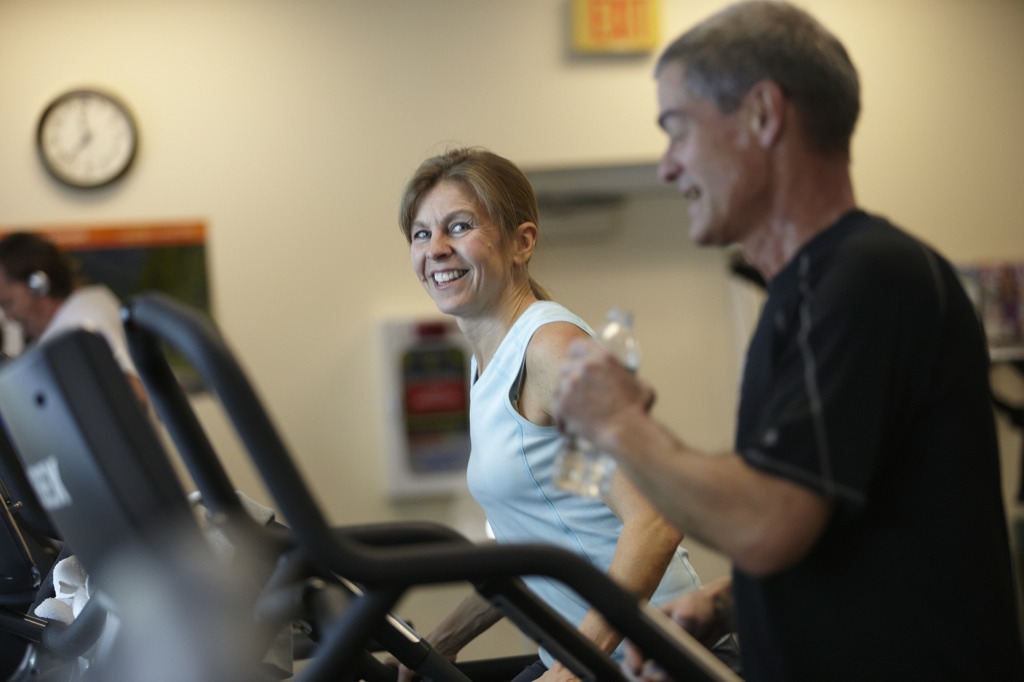
A little exercise can go a long way in reducing stress and making you feel good, along with its many other health benefits — improving/maintaining physical fitness, preventing disease and treating symptoms.
Life is complicated. We are all busy with our own personal challenges and to-do lists. Not to mention that it’s been a very long, cold winter in Maine, which can make even the hardiest New Englander want to curl up into a ball and stay in bed until spring finally arrives. But, as tempting as that sounds, it’s not likely to improve your mood at all. If you’re feeling down, resist the urge to mope and get moving.
Studies have shown that moderate to intense exercise can help
- Minimize stress or improve the ability to handle stressful situations
- Minimize anxiety and reduce depression
- Improve self-esteem and perception of self
- Improve sleep patterns and maximize energy during awake hours
The Science!
For those interested in the science behind it, when your body is subjected to certain stimuli (including exercise) your hypothalamus calls for the release of endorphins, and the cells in your body that contain them respond. When endorphins lock into special receptor cells, they block the transmission of pain signals and also produce feelings of euphoria. But endorphins can’t do it alone. Exercise also raises levels of other mood-boosting chemicals, such as serotonin, dopamine, and norepinephrine. The combination of endorphins and these other neurotransmitters produces an effect often referred to as “the runners high.”
How can exercise affect us?
In reflecting back on my time as a distance runner, I remember saying many times that it wasn’t always the act of running that got me out there day after day; rather, it was the tremendous feeling I got after my run that had such a positive impact on my outlook. But you don’t have to be a runner to enjoy the benefit of the runners high. Just 30 minutes of physical activity can elicit this effect on the body and improve our mood on a chemical level.
During a fast-paced tennis match or an intense kickboxing class, you’ll find that you concentrate more on your body’s movements than on the things that are irritating you or stressing you out. Redirecting your focus can help calm and clear your mind. This is referred to as “active relaxation” or the capacity to focus on rhythmic motion that can produce a relaxation response within the body.
By reducing our levels of stress, anxiety, and depression, we also sleep better at night, improve our energy during our “awake hours” and reduce the irritability and depression often associated with inadequate sleep.
How to get started
Consult your doctor or an exercise professional if you’re new to exercise or have health concerns. Safety first! Start with small, manageable goals and choose an activity that you enjoy. Exercise shouldn’t feel like a chore. Then make room in your schedule! Make your health a priority and set aside time each day to focus on you. You’ll be glad you did.
Guest post by Jaclyn Chadbourne, a clinical exercise physiologist and principal at UMedGym in South Portland, Maine
What do you do for exercise?
We could also use a little motivation — I know I certainly could! Do you have an exercise routine that works? A class or program that you participate in you’d like other people to know about? Send me a message or post a comment below.



Leave A Comment